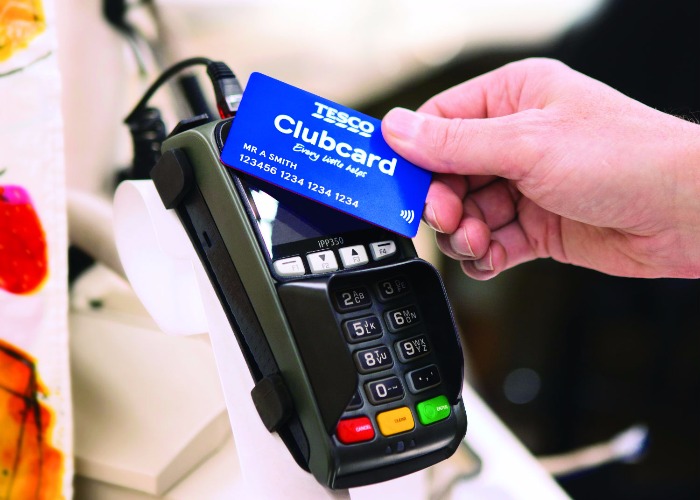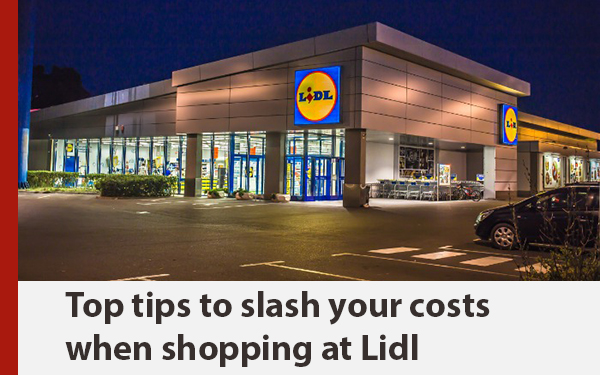Opinion: supermarkets are taking us for a ride with member-only discounts

As M&S becomes the latest supermarket to try offering discounts to members, John Fitzsimons wonders whether these schemes are actually helpful to shoppers.
There is very much a ‘them and us’ feeling of being a shopper in supermarkets at the supermarket.
Most of the big names essentially have two sets of prices currently ‒ those for members, and those for everyone else.
The latest to give it a go is Marks & Spencer (M&S), who confirmed this week that they are trialling ‘Sparks Prices’ for members of its Sparks loyalty scheme.
According to reports, the trial ‒ taking place in 50 stores ‒ sees £2 off certain ‘dine in’ meals and bottles of prosecco.
M&S is far from the first supermarket to opt for this route in ‘rewarding’ regular shoppers.
The likes of Tesco, Sainsbury’s and Co-op have all launched similar schemes in recent months in a bid to retain shoppers who are feeling the pinch from rising food prices in the midst of the cost of living crisis.
It seems likely that we may see further supermarkets dip their toe into such promotions, which makes it suitable to question whether these schemes are really as positive for shoppers as it may seem.
The pros of member-only discounts
The appeal of these sorts of schemes is clear to see. Everyone is looking to spend a little less on our food shopping at the moment.
While food price inflation appears to have peaked, even at its current slowed rate the cost of our food is still going up at speeds that haven’t been seen in decades.
Member discounts are a simple way for people to slash a few quid off their shopping without really having to make any active changes to their habits ‒ so long as the products on their shopping list are included in the scheme, they are cheaper.
All the shopper has to do is scan their card or app at the till, whether they are shopping online or in person.
There’s also the feeling that you are getting something for nothing.
These membership schemes are generally free to sign up for, and in return you can get some money off your shopping.
That’s a compelling idea.
Essentially, it’s a stress-free way to do your usual shopping and pay less for the food you buy.
And the selling point for supermarkets is obvious.
Given how price-conscious so many of us are at the moment, it’s a simple way to try to retain some customers who might otherwise have been tempted into moving to using a cheaper supermarket for their weekly shop.
Are shoppers really benefiting from member discount schemes?
However, I think it’s worth taking a moment to question whether these schemes are really such a good idea for shoppers.
While they are obviously useful if you only plan to use a single store for your food shopping, they are an absolute pain if you like to shop around.
In order to take advantage of the various schemes you’ll need a wallet full of membership cards, or a mobile phone crammed with supermarket apps, which is less than ideal.
There are also concerns around whether these schemes are actually delivering for shoppers.
A month ago Which? reported Tesco to the Competition and Markets Authority (CMA) over the way it displays prices for items in its Clubcard Prices promotion, particularly the fact that unit prices are not included, making it harder to gauge whether you are really getting a good deal.
Similarly, the price match schemes employed by a host of supermarkets are coming under scrutiny from the CMA, with the thinking that there is less motivation to actually reduce prices if you know that it will be matched by others.
That thinking could be stretched to member discounts too ‒ after all, we have already seen supermarkets come under fire from the CMA for the anti-competitive way it has handled fuel prices.
Take what you can get
Ultimately it’s welcome that such discounts are at least on offer.
And if you have the space in your wallet or phone then it makes sense to sign up to as many of these membership schemes as you are likely to make use of.
But as with so many areas of our finance at the moment, the worst thing we can do is get complacent.
If you want to keep your food costs as low as possible, then simply expecting member discount schemes to do the work for you isn’t going to be enough ‒ instead, you’ll have to actively compare prices and consider shopping around rather than relying on your local supermarket.
Comments
Be the first to comment
Do you want to comment on this article? You need to be signed in for this feature
